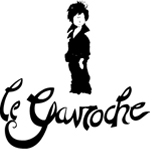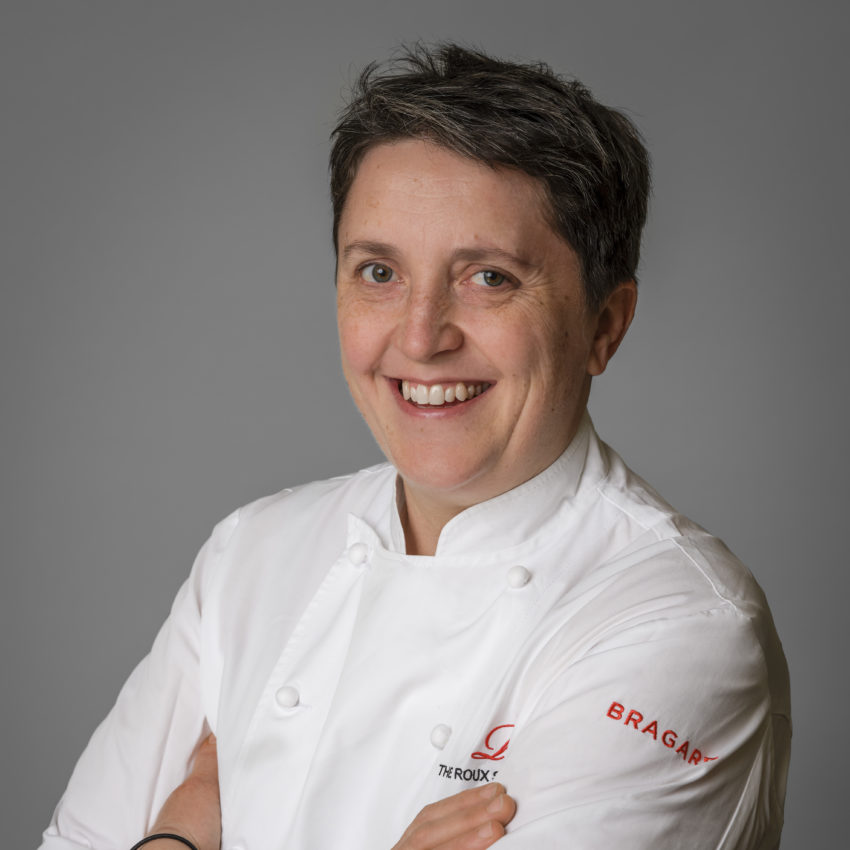
Rachel Humphrey was appointed Executive Chef of Le Gavroche in 2015, having started her career there as an apprentice in 1996.
From an early age, Rachel was inspired to become a chef thanks to her mother and grandmother’s home cooking. As she grew up in Dunstable, Bedfordshire, her heroes were the chefs she watched on TV, particularly Michel and Albert Roux, whose show At Home with the Roux Brothers opened her eyes to the world of fine dining. Rather than apply to catering college, Rachel wrote to a number of restaurants in London to request an apprenticeship and received a reply from Le Gavroche. Over the next four years, she progressed to chef de partie.
Her next career move was an unusual one for a chef working in one of the country’s most acclaimed restaurants: she joined the RAF. Rachel spent the next three years cooking up to 400 meals in the airmen's mess, the officers' mess, as well as the occasional dinner at Chequer's or a VIP’s dinner party. As part of her service, she worked in the Falkland Islands.
On leaving the RAF in 2003, there was a vacancy at Le Gavroche, and she returned as chef de partie, then as sous chef, before becoming the first female head chef in the restaurant’s history in 2008. In 2015, Rachel was appointed Executive Chef.
In 2017, Rachel joined the Roux Scholarship judging panel.
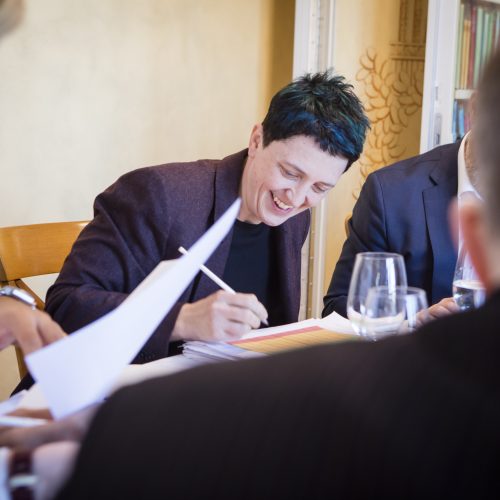
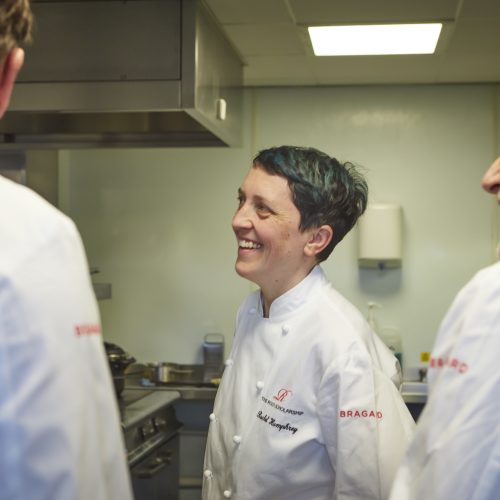
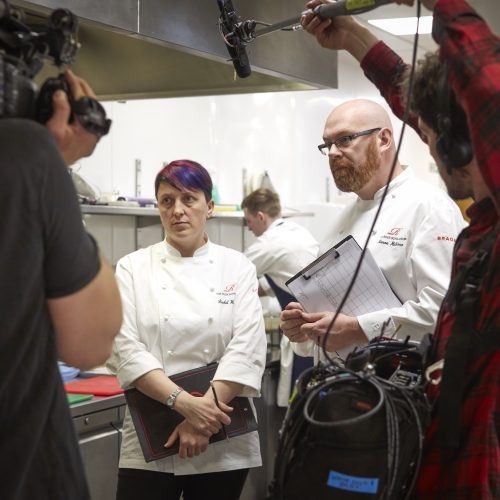
You’ve stayed true to classic French food for most of your career, what do you love about this style of food?
I love the classical tradition of French food. It is the building blocks for all types of food but still has its place. There is such satisfaction in making the basic things such as stocks and sauces from scratch and using them.
How did your experience in the military helped your progression as a chef?
It was a great experience to see a something completely different as a chef. An airmen’s mess for 400 is totally different to fine dining but all aspects of cooking can be applied in different scenarios. It helped me develop as a person, to become more confident outside of cooking and enabled me to have different experiences things in work and outside which I wouldn’t have done otherwise. There are similarities as the military and kitchens have a similar structure in how they are run and I could use what I learnt as I developed to become the chef.
You learned ‘on the job’ as an apprentice, would you recommend this as a good way to start a career?
I think it gave me personally an advantage being an apprentice and learning on the job as opposed to going to college. Of course, getting an apprenticeship at Le Gavroche was the biggest advantage I could get. As I always knew being a Chef was what I wanted to do, I thought it was better for me to gain practical experience while going to college one day a week. I think I was very lucky to end up with the best of both.
What do you enjoy about judging the Roux Scholarship?
In the first round, I love to see the variety of interpretations that we get from the same list of ingredients. Then, to see the dish and compare it with how you thought it would be from the written recipe. Of course, the final is such a great occasion there is always some fantastic cooking.
What advice would you give applicants?
For the online application, read the brief very carefully before you even start to put ideas down. Make a list of what is asked for so you can tick off what you’ve done. Also make sure that when writing your recipe, you think about giving yourself time for the dessert box. If the recipe takes up too much of the time, the dessert will suffer and there are marks to gain. Practice the dessert box element beforehand by getting someone to put a box together. Learn by heart some basic pastry recipes that you know work, that way you can adapt them when you get the mystery box.
How can taking part in The Roux Scholarship help a chef's career?
Being such a prestigious competition, taking part in the scholarship is such a boost to a young chef's career. Of course if you win the benefits are obvious but being a regional finalist or national finalist marks you out amongst your peers.
How do employers/kitchen brigades benefit from entering their chefs?
Having a Roux scholarship entrant is beneficial to the whole kitchen from what they can learn at the various stages of the competition to the inspiration it gives to the other chefs around them to progress and improve.
Why is it important to learn and master the classic cooking techniques?
It is very important to learn the basics so that the foundations of your cooking are strong and you have something to build on. Basic recipes and techniques can be adapted but they need to be correct to start with.
What have YOU learned thanks to being a judge?
Being a judge, I’ve had the chance to see different ideas and techniques. Each chef has a different interpretation and it’s great when I get to see and taste something or learn something that’s new to me. Being amongst the judges, especially in the paper/recipe judging I’ve seen how the collaboration of the judging works so well; perhaps one of us is more strict than others but as we are all consistent with our own marks, we then discuss everything and a fair balance is achieved across a lot of entrants.
